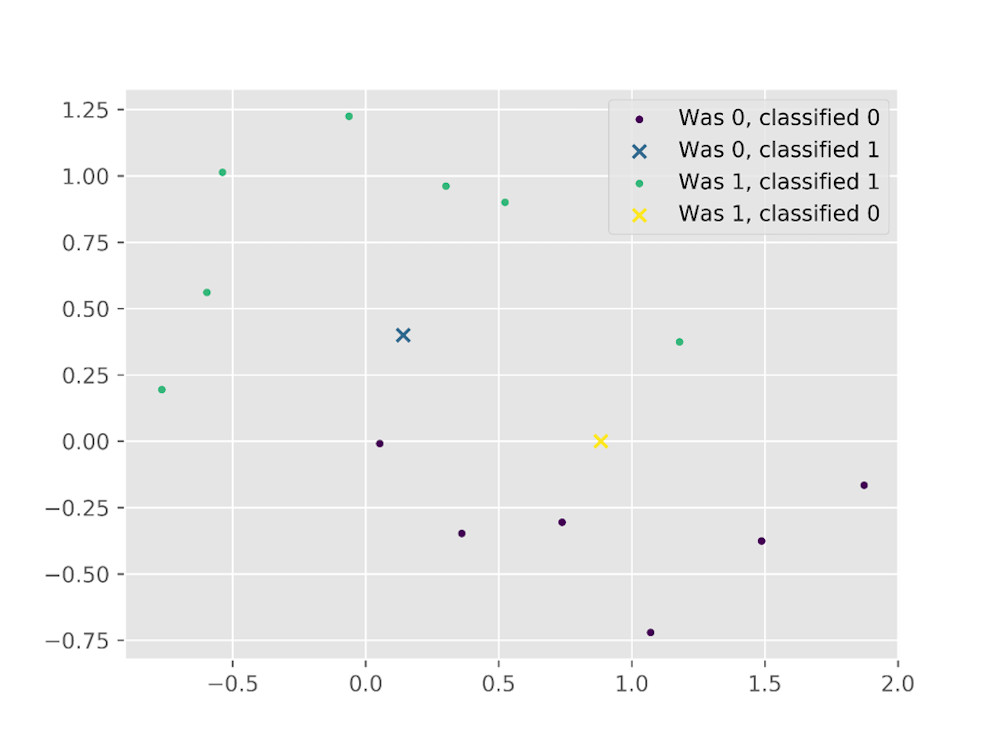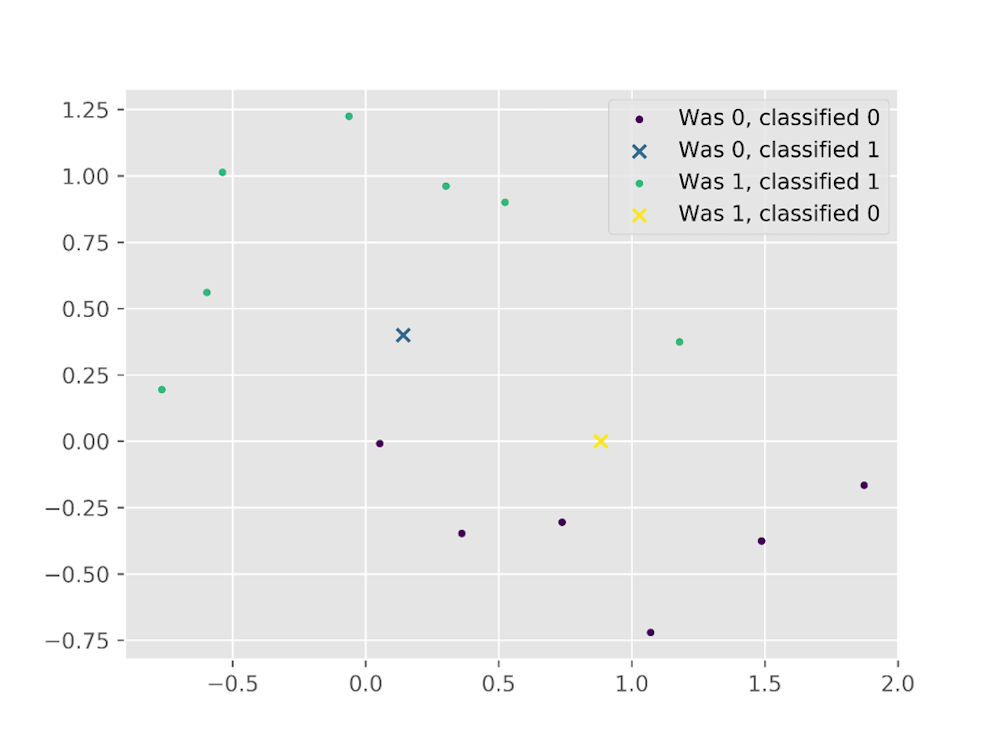
Result graph of classification from the new half-moon sample
As part of the February Quantum Development Kit (QDK) update, we are releasing our new Quantum Machine Learning (QML) library. We’re very excited not only to bring a new library to the QDK, but also one that was developed in collaboration with Microsoft’s quantum research team to build knowledge in the rapidly evolving quantum machine learning space.
The QML library provides the necessary tools to implement the circuit-centric quantum classifier, a new hybrid quantum-classical algorithm to solve supervised classification problems. We are also releasing a sample to help demonstrate how to use the QML library to classify data using the circuit-centric quantum classifier. For more information on how to get started with the QML library, head over to our documentation page.
Once you’re acquainted with how to classify data using the QML library and sample, you can start building your own classifiers in Q#. We encourage you to explore QML – why not try building your own model and compare it against the sample? You can find information on how to get started building your own classifiers, loading your own data sets, and validating your models in our documentation.
The QML library is open source along with the rest of the QDK. We always look forward to new community contributions! If you’re interested in contributing to the Quantum Machine Learning library, our documentation, or any part of the QDK, check out our contribution guide.
To learn more about the research behind the circuit-centric quantum classifier, check out the research paper here.
For more information about what’s new in this month’s QDK release, head over to the Quantum Development Kit release notes. To learn more about classical machine learning in Azure, be sure to take a look at Azure Machine Learning.
The QML library provides the necessary tools to implement the circuit-centric quantum classifier, a new hybrid quantum-classical algorithm to solve supervised classification problems. We are also releasing a sample to help demonstrate how to use the QML library to classify data using the circuit-centric quantum classifier. For more information on how to get started with the QML library, head over to our documentation page.
Once you’re acquainted with how to classify data using the QML library and sample, you can start building your own classifiers in Q#. We encourage you to explore QML – why not try building your own model and compare it against the sample? You can find information on how to get started building your own classifiers, loading your own data sets, and validating your models in our documentation.
The QML library is open source along with the rest of the QDK. We always look forward to new community contributions! If you’re interested in contributing to the Quantum Machine Learning library, our documentation, or any part of the QDK, check out our contribution guide.
To learn more about the research behind the circuit-centric quantum classifier, check out the research paper here.
For more information about what’s new in this month’s QDK release, head over to the Quantum Development Kit release notes. To learn more about classical machine learning in Azure, be sure to take a look at Azure Machine Learning.




 IonQ Achieves Industry Leading Performance on Next Generation Barium Qubits
IonQ Achieves Industry Leading Performance on Next Generation Barium Qubits